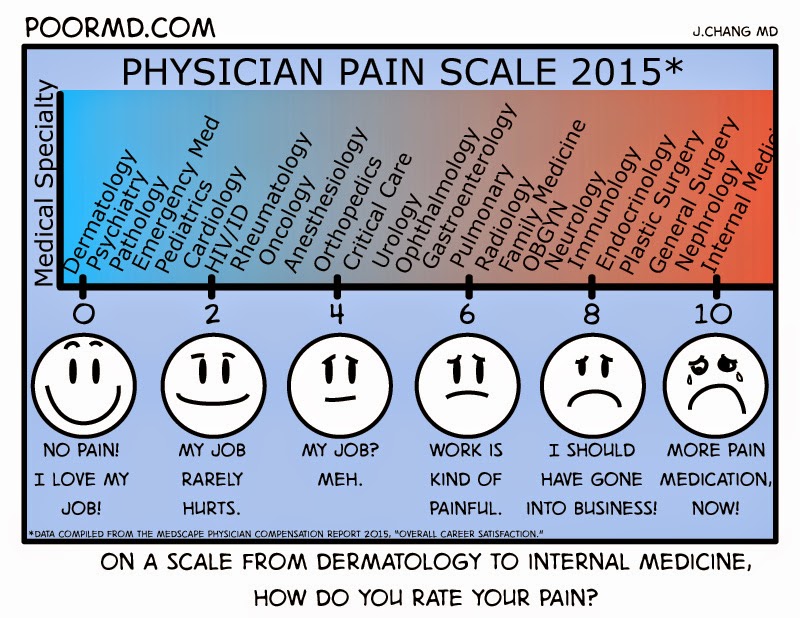- Joined
- Dec 19, 2010
- Messages
- 9
- Reaction score
- 1
Hi, I am a medical student considering both EM and Psych. Apart from working in, and researching, the fields more, I was hoping the psychiatrists could fill me in on some questions.
1) How much of your work is psycotherapy vs. medication management?
2) Was there anything about the psychiatry that you wish you knew before entering?
3) What do you see as the biggest upsides, and downsides, of the psychiatry?
5) EM and psychiatry appear almost opposite to me (although I think I am multifaceted and will enjoy different fields). One of the things that drew me toward EM initially was that it involves interventions that often give tangible results. Is it easy to perceive the effect you have on your patients? How much satisfaction do you take in your work? I've heard that some find the psychiatry emotionally draining--has that been your experience?
6) How common is it to give patients your personal phone number to call night or day in case of emergency?
7) Do you use telepsychiatry in your practice? How prevalent is telepsychiatry? Can one do telemedicine from abroad? Do you see any problems with telepsychiatry now, and how do you see telepsychiatry changing in the future?
A big thank you!
1) How much of your work is psycotherapy vs. medication management?
2) Was there anything about the psychiatry that you wish you knew before entering?
3) What do you see as the biggest upsides, and downsides, of the psychiatry?
5) EM and psychiatry appear almost opposite to me (although I think I am multifaceted and will enjoy different fields). One of the things that drew me toward EM initially was that it involves interventions that often give tangible results. Is it easy to perceive the effect you have on your patients? How much satisfaction do you take in your work? I've heard that some find the psychiatry emotionally draining--has that been your experience?
6) How common is it to give patients your personal phone number to call night or day in case of emergency?
7) Do you use telepsychiatry in your practice? How prevalent is telepsychiatry? Can one do telemedicine from abroad? Do you see any problems with telepsychiatry now, and how do you see telepsychiatry changing in the future?
A big thank you!




